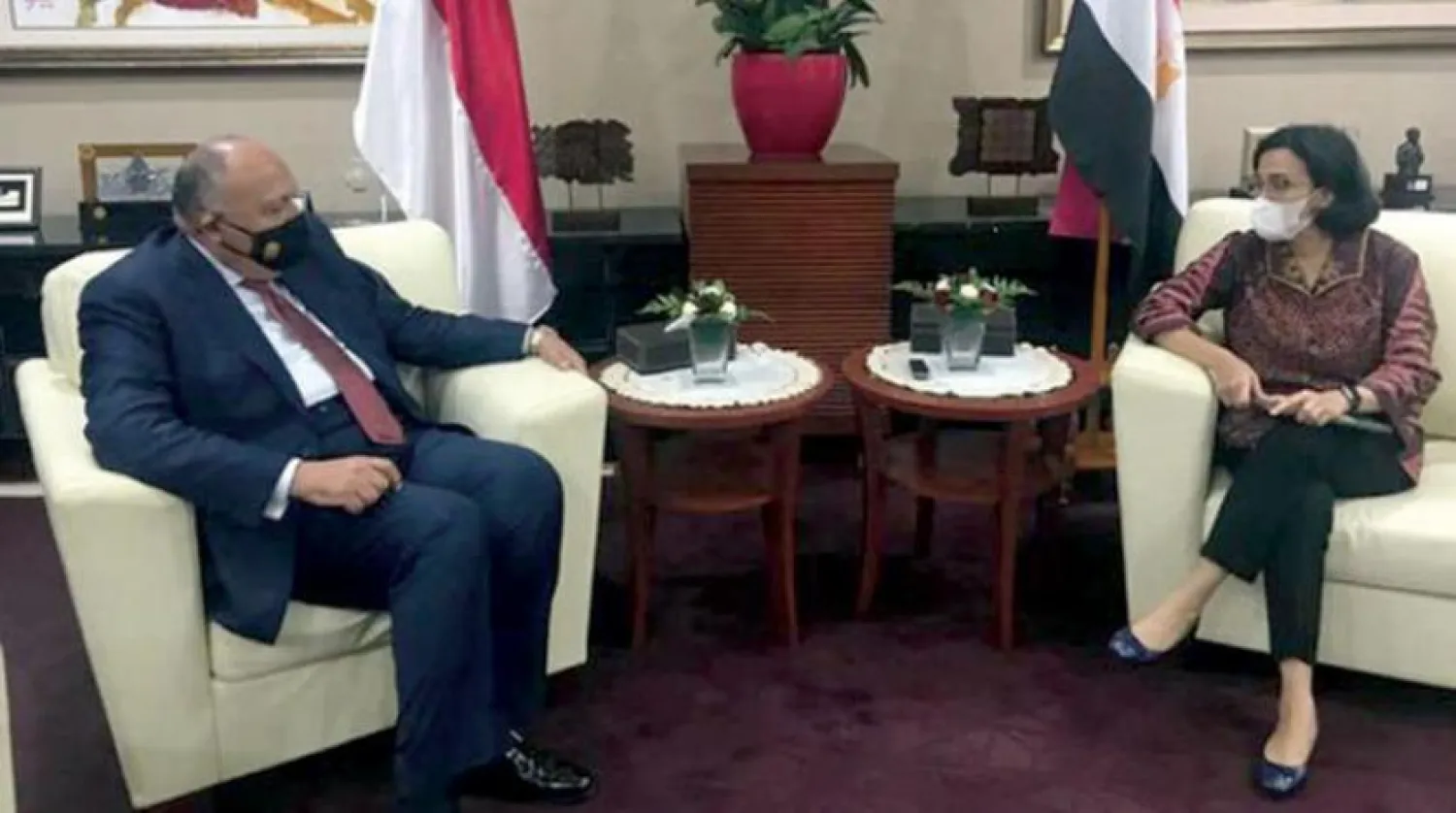Indonesian President Joko Widodo held talks with Egyptian Foreign Minister Sameh Shoukry in Jakarta on Friday.
Both sides agreed to bolster bilateral economic and development cooperation and discussed several topics of mutual interest.
A cabinet statement on Friday revealed that Shoukry handed Widodo a letter from President Abdel Fattah el-Sisi tackling all means of bilateral cooperation between the two countries and ways to enhance them.
Sisi also briefed Widodo about the ongoing preparations to host the COP27 United Nations Climate Change Conference 2022 in the Red Sea resort of Sharm El-Sheikh.
Shoukry said Egypt looks forward to give more impetus to all aspects of bilateral ties, according to Foreign Ministry spokesman Ahmed Hafez.
He underlined the importance of continued consultations to coordinate positions in line with the aspirations of the two friendly peoples.
Shoukry arrived in Jakarta as part of an Asian tour he kicked off last week which included Malaysia, Singapore and Indonesia.
He will next visit Pakistan to participate in the 48th session of the Council of Foreign Ministers of the Organization of Islamic Cooperation (OIC) that will be held in Islamabad on March 22.
Hafez said Shoukry also met Friday with Indonesian Finance Minister Sri Mulyani and discussed with him aspects of promoting economic ties and exploring cooperation opportunities in various development fields.
He later signed a memorandum of understanding with his Indonesian counterpart Retno Marsudi to establish an Indonesian-Egyptian joint committee.
Shoukry signed another MoU with Minister of Environment and Forestry Siti Nurbaya Bakar to cooperate in the field of protecting the environment and sustainable development.









